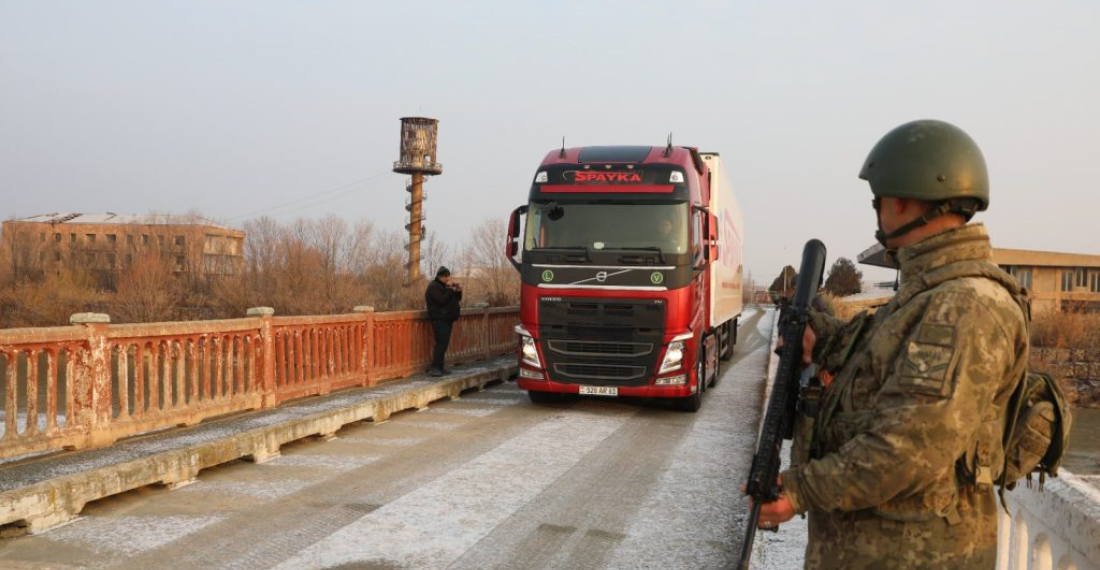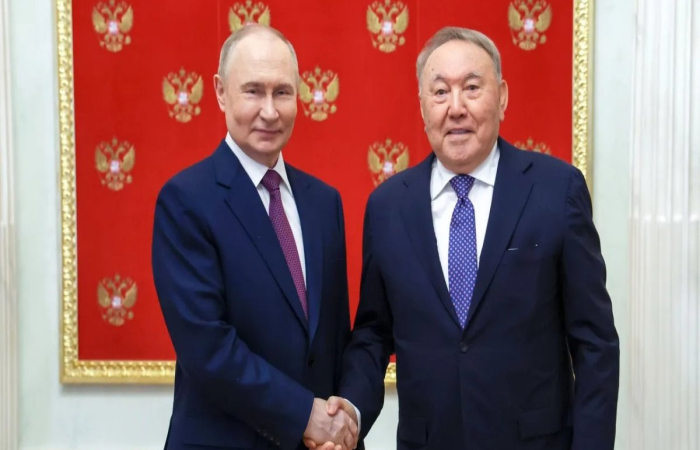The Margara-Alican border bridge connecting Armenia and Turkey has been opened to allow five Armenian aid trucks to pass to the Turkish regions affected by the magnitude 7.8 earthquake on Monday (6 February). It is the first time the Turkey-Armenia border has been opened in 30 years.
"Trucks with humanitarian aid have crossed the Margara bridge on the border and are on their way to the earthquake-stricken region," Vahan Hunanyan, a spokesperson for Armenia’s Foreign Ministry, wrote on Twitter.
Serdar Kılıç, Ankara’s special envoy to Yerevan, hailed the arrival of the aid trucks, writing on Twitter that he "will always remember the generous aid sent by the people of Armenia to help alleviate the sufferings of our people in the earthquake-striken region in Türkiye."
The bridge, which connects the village of Margara in Armenia with the village of Alican in Turkey, had been closed since 1993, when Turkey closed its borders with Armenia in protest at the First Karabakh War.
The Alican border crossing was also used in 1988 when a big earthquake hit Armenia to send aid collected by the Turkish Red Crescent to the affected areas.
Many countries sending aid and search and rescue teams to Turkey and Syria
The bridge’s opening for the aid convoy comes as many countries continue to offer aid and send search and rescue teams to Turkey in response to Monday’s disastrous earthquake near the Turkish city of Gaziantep.
On Tuesday, Armenia’s Interior Ministry said it had sent more than 50 specialists to Syria and Turkey to take part in ongoing search and rescue operations.
The next day, Armenia’s Ministry of Emergency Situations said it had flown more than 30 tons of humanitarian aid, including food and medicine, to the Syrian city of Aleppo.
Turkey-Armenia relations slowly normalising, but tensions remain
Although Turkey and Armenia recognise each other and the countries have attempted to normalise relations over the past two years, they still do not have formal diplomatic ties and disagreements on a number of issues persist.
In late 2021, Yerevan and Ankara appointed special envoys for talks, marking the first direct negotiations between Armenian and Turkish officials in over a decade. In February 2022, direct commercial flights between Armenia and Turkey also resumed after a two-year hiatus.
Then, in July 2022, Turkish and Armenian officials agreed to open the land border for third-country citizens visiting both countries as soon as possible, however changes on the ground are yet to materialise.
Although small, the opening of the Turkey-Armenia border is a hugely significant and symbolic moment in the normalisation process between the two countries.






